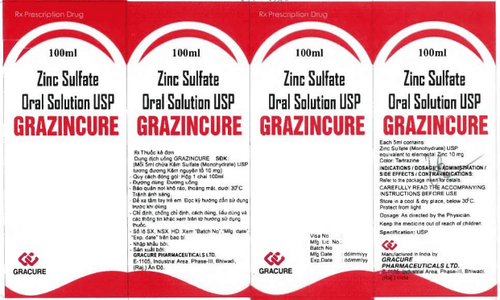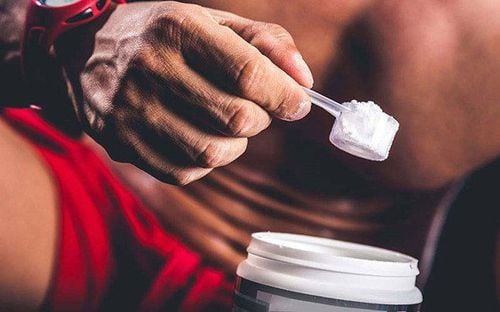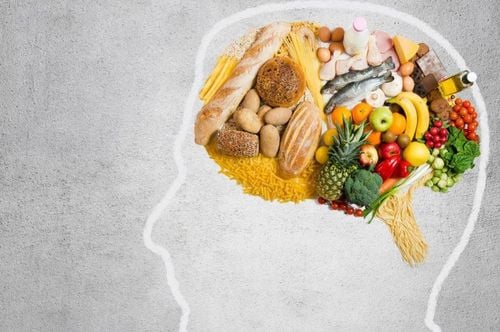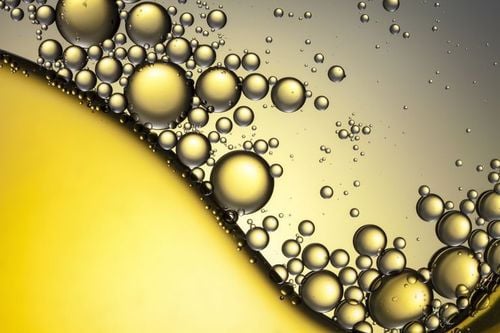This is an automatically translated article.
Creatine is the number one supplement for improving performance in the gym. Studies show it this product can increase muscle mass, health and exercise performance. In addition, creatine offers several other health benefits, such as fighting neurological disease.1. What is creatine?
Creatine is a substance found naturally in muscle cells. Helps muscles produce energy during heavy lifting or intense exercise.
Using creatine as a supplement is a popular choice with athletes and bodybuilders to gain muscle, increase strength, and improve exercise performance. Chemically, creatine shares many similarities with amino acids.
Several factors affect creatine levels in the body, including meat intake, exercise intensity, muscle mass, and levels of hormones like testosterone and IGF-1. About 95% of the body's creatine is stored in the muscles as phosphocreatine. The remaining 5% is found in the brain, kidneys and liver.
When supplementing with Creatine, the body increases the amount of phosphocreatine. This is a form of energy stored in cells that helps the body produce more of a high-energy molecule called ATP. When ATP levels in the body are high, the body can function more efficiently during exercise.

Creatine giúp cung cấp năng lượng cho cơ bắp
2. How Creatine Works
Creatine can improve health and athletic performance in several ways. During intense exercise, the main role of creatine is to increase the stores of phosphocreatine in the muscles.
Creatine also helps increase muscle density in the following ways:
Improves cell signaling: thereby helping to repair damaged cells and grow new muscle. Increased anabolic hormones: Studies have shown an increase in hormones, such as IGF-1, after taking creatine. Boosts Cell Hydration: Creatine helps elevate the water content of your muscle cells, causing a cellular volatilization effect that plays an important role in muscle growth. Reduced protein breakdown: Increases total muscle mass by reducing protein breakdown in the body. Lower myostatin levels: Elevated levels of the protein myostatin can slow or completely inhibit new muscle growth. Creatine supplementation can inhibit this process. In addition, creatine supplementation also increases phosphocreatine stores in the brain, which may improve brain health and prevent neurological disease.
3. Build muscle and improve exercise performance
Creatine is effective for both short and long term muscle growth.
A 14-week study in older adults has shown that adding creatine to your workout routine can significantly improve leg strength and muscle mass.
In a 12-week study in weightlifters, creatine increased muscle fiber growth by 2 to 3 times. A comparative review of dietary supplements found creatine to be the most effective in building and improving muscle density.
In one review, supplementing with creatine during training was able to increase strength by 8% and increase weightlifting performance by 14%. Creatine also helps maintain strength and training performance while increasing muscle mass during intense training. These remarkable results were mainly due to the increased body's ability to produce ATP after supplementing with creatine.

Để xây dựng cơ bắp, bạn nên bổ sung creatine
4. Maintain brain function
Like muscles in the body, the brain also stores phosphocreatine and requires large amounts of ATP for optimal function.
Creatine supplementation can improve a number of conditions such as:
Alzheimer's disease Parkinson's disease Huntington's disease ischemic stroke Epilepsy Brain or spinal cord injury Motor neuron disease Decreased brain function in the elderly Vegetarians tend to have low levels of creatine because the diet does not include meat, the main food source of natural creatine.
In a study in vegetarians, creatine supplementation showed saw a 50% improvement in the memory test and a 20% improvement in the intelligence test score. While it may be beneficial for the elderly and those with low creatine stores, supplementing with this compound does not have a noticeable positive effect on brain function in healthy adults.
5. Creatine Types and Dosage
The most popular and widely studied form of supplement is called creatine monohydrate.
For the body to get used to the process of consuming creatine, users can use 20 grams per day, divided equally into 5-gram servings once, for 5 to 7 days. After 5 to 7 days after using Creatine 20 grams, users can, take 3 to 5 grams per day to maintain muscle health.
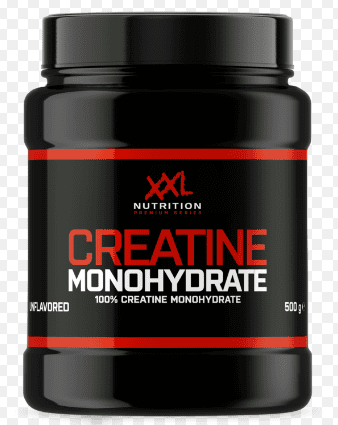
Creatine monohydrate là một sản phẩm bổ sung Creatine phổ biến nhất
6. Side effects
Creatine is one of the most widely researched supplements available today. Several four-year studies have shown no noticeable side effects when using this product.
There is also no evidence that creatine harms the liver and kidneys in healthy people taking normal doses. That said, people with liver or kidney problems should consult their doctor before supplementing with creatine.
Please dial HOTLINE for more information or register for an appointment HERE. Download MyVinmec app to make appointments faster and to manage your bookings easily.
Reference article: Healthline.com




